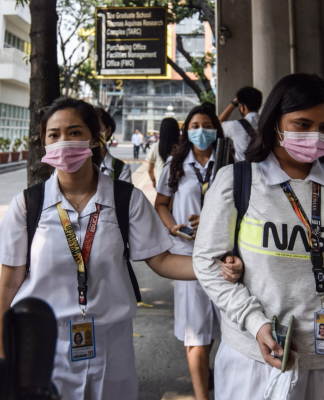THE CONVICTION of Chief Justice Renato Corona by the Senate impeachment tribunal for culpable violation of the Constitution and/or betrayal of public trust should underscore the need for public officials to conduct themselves according to the highest standards of public behavior. While Senate President Juan Ponce Enrile said he was convinced there was no ill will on the part of Corona to hide his real properties, the respondent “testified and admitted . . . that he had around P80 Million in three peso accounts and US$2.4 Million in four US dollar accounts,” which he did not declare because the former “represented ‘co-mingled funds,’” while the latter were covered by the “absolute confidentiality” of foreign accounts in the foreign currency deposits law.
Enrile rightly said that even if the peso accounts were commingled, they should have been declared. Ditto with the foreign deposits. “Are we now to say that this Constitutional command is limited to a public official’s assets or deposits in local currency?” asked Enrile. “If so, would we not be saying, in effect, that the Constitution allows something less than a full, honest, and complete disclosure?”
Other public officials of course have done likewise, and even worse, and Enrile wondered aloud why Corona should be judged harshly for something others regularly do with impunity, perhaps including the congressmen who had impeached Corona, many of whom, according to a report by journalist Malou Mangahas, had never filed at all their statements of assets, liabilities, and net worth? But a judgment had to be rendered if only “to uphold the law and sound public policy,” as Enrile said. Other public officials have been punished and removed from office for lesser offenses. The highest judge of the land should not be immune from the exacting standards of justice and public comportment.
Enrile has acquitted himself well in presiding over the impeachment trial and rendering an objective judgment. But he himself goes against the public euphoria that proclaims the trial a triumph of democracy. Enrile himself knows that what transpired could hardly be a fit model for other impeachment trials. “I am not oblivious to the possible political repercussions of the final verdict we are called upon to render today,” he said. “I am deeply concerned that the people may just so easily ignore, forget, if not completely miss out, the hard lessons we all must learn from this episode, instead of grow and mature as citizens of a democratic nation.”
Alas, if Corona is guilty, so is the rest of the body politic that conducted the impeachment trial as a blatantly political process. Enrile himself complained about the “indiscriminate, deliberate and illegal machinations of some parties who have been less than forthright with this Court in presenting dubiously procured and misleading documents which were spread to the media obviously to influence this Court’s and the public’s opinion.” He cited the Land Registration Authority, whose head was the grade-school classmate of President Aquino III, which provided an erroneous list of 45 properties supposedly owned by the Corona that was fed to the media even before the trial. Moreover, there was Ombudsman Conchita Carpio Morales, who sent a letter to the Chief Justice requiring him to explain in 72 hours an alleged aggregate amount of US$10M in several dollar accounts, which was also leaked to the media.
The Ombudsman was not the only independent office that conspired with the Executive and Legislative in subjecting the Judiciary, the weakest branch of government, to political thuggery. The peso and dollar deposits were pried upon by the Anti-Money Laundering Council through the Bangko Sentral ng Pilipinas, the independent monetary authority. PS Bank officials had testified in the impeachment court that representatives of the AMLC were with the BSP inspectors that could have enabled the AMLC to look at Corona’s deposits even without a court order as mandated by law. Moreover, Audit Commissioner Haydee Mendoza tracked Corona’s foreign deposits, which violated the independence of her office as a constitutional commission and violated altogether the law, since as state auditor she’s supposed to look into public, not private, accounts. The Ombudsman herself should explain how she could effectively conduct her anti-graft campaign when she herself had countenanced, if not commissioned, illegal acts by the BSP, AMLC, and COA.
The antics of the prosecution as well as the Executive should underscore the fact that impeachment is not a matter of justice but of politics. The end justifies the means for the enemies of Corona. He should be impeached and ousted by hook or by crook, mainly by crooks in government. What happened is not exemplary of our democracy. What happened should warn others that the state would twist the rules to suit its interests. The unearthing of Corona’s foreign deposits, for example, is bad for investments. Foreign investors would certainly think twice from now on in having foreign accounts in the Philippines since they could be scrutinized any time even without a court order. In addition, if the political powers could get rid of the highest judge in the land by political lynching on media, then no citizen would be secure.
What happened was not a triumph of democracy. Quoting Joker Arroyo, “Impeachment is a political process, not a political assassination.”















